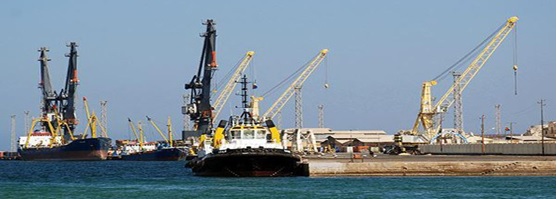
In light of Ethiopia’s ever-growing population, gaining access to the sea is not a mere luxury but a matter of utmost significance for the country’s existence. As the population continues to increase, the demand for various resources and opportunities has also risen exponentially. Therefore, Ethiopia believes that sea access is essential to catering to the needs of its expanding populace and ensuring their survival and well-being.
Ethiopia’s quest for a sea port is undeniably justifiable given its landlocked geographical position and the potential benefits that access to a sea port can bring. Being surrounded by landlocked countries, Ethiopia faces significant challenges in terms of importing and exporting goods. Therefore, seeking access to a sea port is a logical step for the country to enhance its economic growth and regional integration.
For Ethiopia, access to the sea is not a luxury but a matter of existence, especially considering the country’s growing population. It is essential for addressing resource scarcity, fostering economic growth, enhancing food security, promoting regional development, facilitating global connectivity, improving disaster response capabilities, and other related aspects.
There is no gainsaying the fact that access to a sea port would provide Ethiopia with numerous economic advantages. It would significantly reduce transportation costs as goods could be transported directly by sea rather than relying solely on land-based transportation. This would not only make trade more efficient but also contribute to price reductions for consumers, stimulate foreign investment and foster economic development within the country.
Furthermore, sea access would offer Ethiopia greater connectivity with global markets. It would serve as a gateway for international trade and enable the country to participate in global supply chains. This enhanced connectivity would attract foreign direct investment and facilitate technology transfer leading to the modernization and diversification of Ethiopian industries.
Ethiopia’s commitment to peaceful means can be observed through its active participation in regional and international organizations focused on promoting peaceful resolutions. It seeks to engage in diplomatic dialogue, negotiations and cooperative initiatives to find mutually satisfactory solutions that respect the rights and interests of all parties involved.
By having direct access to a sea port, Ethiopia can actively participate in regional economic initiatives and integrate its industries with other countries in the region. This would strengthen economic ties, promote cooperation, and contribute to the overall stability and prosperity of the region. Ethiopia’s quest for a sea port is justified by considering historical precedents.
Many landlocked countries around the world have successfully developed partnerships and agreements to secure access to sea ports.
As a landlocked country access to a sea port would bring numerous economic, strategic and regional integration advantages. By pursuing this goal through diplomatic negotiations respecting the interests of neighboring countries and investing in the necessary infrastructure, Ethiopia can unlock significant opportunities for sustainable development, job creation, and enhanced regional cooperation.
Ethiopia finds itself in a unique position within the Horn of Africa surrounded by neighboring countries but lacking direct access to the oceans and seas. This distinct location has profound implications for the country’s economic prospects and overall development. While Ethiopia boasts abundant natural resources and a rapidly growing economy the absence of sea access poses significant hindrances to its full potential.
The country has always been a proud and independent nation with a rich heritage that dates back thousands of years. The country’s historical narrative is intertwined with its sense of unity, national identity, and territorial integrity. As a result, Ethiopia views its pursuit of sea access as a legitimate claim rooted in its historical context embodying the aspirations and ambitions of its people.
Considering Ethiopia’s geographical, historical and economic circumstances, the nation asserts its rightful claim to seek access to the sea through peaceful methods.
Given its landlocked position and lack of direct coastal access, Ethiopia faces considerable challenges in terms of development and trade. However, the country firmly believes that it should have the opportunity to harness this invaluable natural resource in a manner that is both peaceful and advantageous for all parties involved.
Ethiopia’s pursuit of sea access is not driven by aggressive intentions or desires for expansion. Instead, it is rooted in the principles of peaceful coexistence, mutual benefit and fair access to essential maritime resources. The country understands the importance of engagement and collaboration with its neighboring coastal states in order to achieve a mutually acceptable resolution.
Access to a sea port would facilitate Ethiopia’s participation in regional and global trade networks. It could serve as a gateway for Ethiopian goods to reach global markets thereby expanding the country’s export potential and promoting international trade. This would create opportunities for economic growth, job creation and technological advancements within different sectors of the Ethiopian economy.
Ethiopia seeks to engage in constructive dialogue with concerned parties to explore peaceful solutions and mutual benefits. The country welcomes multilateral platforms such as regional organizations and international forums to foster discussions and negotiations on sea access. Ethiopia is committed to pursuing diplomatic engagement with all relevant stakeholders to find a just and peaceful resolution that takes into account the interests of all involved.
While Ethiopia is surrounded by waters, it remains landlocked which presents numerous challenges across various sectors. The lack of sea access impacts trade, transportation, economic opportunities, diplomacy, security, resource availability and cultural exchange. Addressing this issue and obtaining sea access would provide Ethiopia with new opportunities for economic growth, development and regional integration benefiting the country and its people.
Ethiopia also emphasizes its commitment to peace and stability in the region. The country believes that gaining sea access through peaceful means would contribute to regional security and cooperation. By promoting peaceful negotiations, Ethiopia aims to foster a climate of trust and cooperation among neighboring states thus reducing tensions and promoting collective efforts towards shared prosperity.
Ethiopia’s desire for sea access is rooted in its economic aspirations. The country aims to transform its economy and achieve sustainable development recognizing that access to the sea is a crucial element in achieving these goals. Ethiopia envisions utilizing sea access to facilitate international trade, attract foreign investment and boost its export-oriented industries. This, in turn, would contribute to job creation, technology transfer and overall economic prosperity.
The issue of water in general and the concern of the Red Sea in particular are quite important for Ethiopia’s development, Prime Minister Abiy Ahmed (PhD) said.
Ethiopians have to critically think over accessing sea port via negotiating in a bid to feed some 150 million populations in 2030, he added.
Consulting MPs about the issue of the Red Sea, the premier recently said that: “The Red Sea is of paramount importance in boosting Ethiopia’s development via entertaining a give and take policy with a view to owning port in the Red Sea. As Ethiopia does have everything to be developed, all citizens should be well aware of the abundant resource of the nation.”
According to the Premier, the country needs to be in a position to garner benefits by sharing ethio-telecom, the Grand Abbay Dam, Ethiopian Airlines by analyzing cost benefit analysis.
He further stated that the leaders of Ethiopia, Eritrea, Somalia, Sudan, among other, are expected to closely talk about the issue and reach consensus to help Ethiopia access sea port and options to use multiple ports as the country has to meet the demands of the ever increasing population growth.
“When we entertain discussions and hold close talks, we can device a range of mechanisms to deal with our country’s problems. Since port rent has been pulling Ethiopia’s growth back, we all are expected to be concerned on the issue and openly discuss instead of being quite as if the issue was an untouchable one,” he said.
So long as Ethiopia has the right to use the Red Sea waters both historically and geopolitically, the generation has to capitalize on the major concerns to make the country a well-developed one utilizing water resources in general and that of the Red Sea in particular, the Premier elucidated.
BY ADDISALEM MULAT
THE ETHIOPIAN HERALD WEDNESDAY 18 OCTOBER 2023




